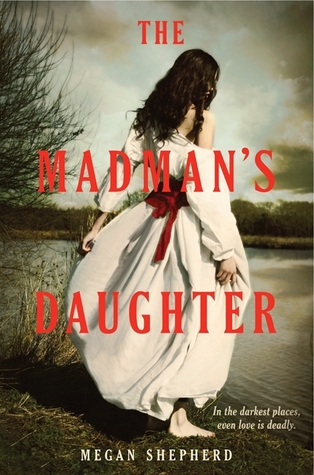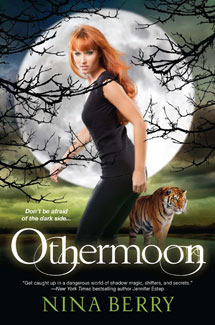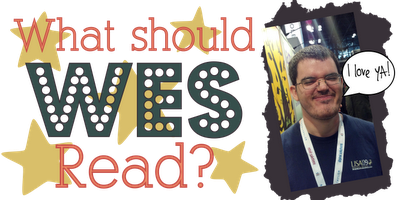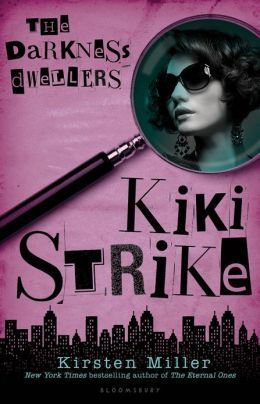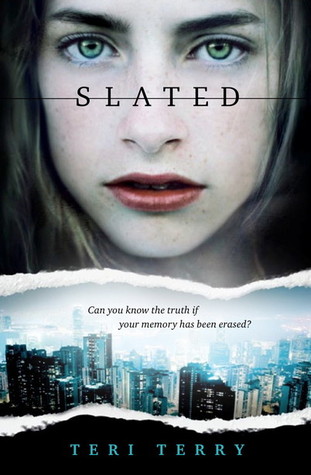Release Date: Jan. 22, 2013
Publisher: HarperTeen
Age Group: Young Adult
Format: E-book
Source: Purchased
Pages: 438
Buy: Amazon / Barnes & Noble / IndieBound
Description: Goodreads
The past few years have held more surprises than part-angel Clara Gardner could ever have anticipated. Yet from the dizzying highs of first love, to the agonizing low of losing someone close to her, the one thing she can no longer deny is that she was never meant to live a normal life.
Since discovering the special role she plays among the other angel-bloods, Clara has been determined to protect Tucker Avery from the evil that follows her . . . even if it means breaking both their hearts. Leaving town seems like the best option, so she’s headed back to California - and so is Christian Prescott, the irresistible boy from the vision that started her on this journey in the first place.
As Clara makes her way in a world that is frighteningly new, she discovers that the fallen angel who attacked her is watching her every move. And he’s not the only one. . . . With the battle against the Black Wings looming, Clara knows she must finally fulfil her destiny. But it won’t come without sacrifices and betrayal.
Cynthia Hand’s Unearthly Trilogy holds a special place in my
YA heart. The first book Unearthly was one of the first books I
read when I started contributing to Wastepaper Prose (despite the fact that I
didn’t review it), and I just adored it—the characters, the romance, the world
of angels. I also loved the sequel Hallowed, though it broke my heart in so
many ways. I expected to feel more
bittersweet upon reading Boundless, the
third and final chapter of Clara’s story. However, I’m far too pleased with everything to concentrate on the fact
that one of my favorite series has come to an end. Boundless
is just what a closer should be: it’s plotted and paced to perfection, it
sufficiently answers all the Big Questions, and it keeps you hooked right
through to the very last word.
Boundless picks up
not long after the events of Hallowed
(and mere weeks after the not required but incredibly interesting e-book Radiant), with Clara and Angela back
from Italy and preparing to set off to Stanford University. Oh yeah, and that Christian Prescott guy is
coming along as well. Clara’s having
visions of fear-filled darkness while being followed by a nosy crow and
dreaming about the hottest cowboy ever (and her former flame) Tucker Avery,
Angela’s burdened with glorious purpose (and possibly other things), and
Christian… well, poor Christian’s wielding a sword of fire. That’s when the archangel Michael shows up,
and things go straight to hell. Honestly, it will all make sense once you’ve read the book.
One of the things that this series does so well is create
and explore realistic relationships that are exciting to read about. Angela and Clara don’t always agree—in fact,
in this case, they are often at odds and trying to convince the other to see
their side of things—but their true affection for one another is always evident. And speaking of relationships, this series
also boasts one of the only love triangles I find to be compelling (see also
Cassandra Clare and Tahereh Mafi). I’m
definitely on a team here, but I can absolutely see why the other side is a
viable option. To her credit, Hand keeps
you guessing until the very, very end… and I may have skipped to the end to see
how it all turned out before I started. It was a total accident, I swear. Either way, I think it’s a very satisfying ending.
I haven’t read many other books about angels, but I’ve never
wanted to branch out because I like this one so much. The world building is intricate yet
organic. Even when you’re reading words
like Quarterius or Triplare, when glory makes their hair glow or travel through
space and time, it doesn’t feel like fiction.
Clara’s angel world is tangible, and that’s one of the reasons I truly
enjoy being there. I could read so much
more of these angels. While I think
Clara’s story might be done, I think there’s so much potential to stay in this
world and explore different characters (ahemJEFFREYahem).









